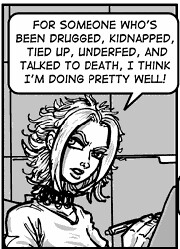A prime example of the left's view of truth is its changing the goal of high school American history textbooks from telling truth to promoting self-esteem among minority and female students by depicting more women and more non-whites in American history textbooks.So to Prager, “depicting more women and more non-whites in American history textbooks” is equivalent to not telling the truth. That’s simply despicable, in addition to totally rocketing off the scale of intellectual dishonesty.
I’d also like to point out to Mr. Prager that the expression is “the prime example,” not “a prime example.” If there’s more than one, then it ain’t prime.
As an excellent (but not prime) example of the kind of people overlooked in American history, I present Martha Ballard.
After raising nine children between 1756 and 1779, Martha Ballard spent the last twenty-seven years of her life as a midwife. Her work involved not only the delivery of 816 babies, but also responsibility for a spectrum of essential medical services in the town of Hallowell, Maine. Her diary entries are the resource and catalyst for Laurel Thatcher Ulrich's essays into the social history of late eighteenth- and early nineteenth-century New England.I just finished reading Ulrich’s Pulitzer Prize-winning A Midwife’s Tale, and there’s no doubt that Martha Ballard would have whomped Prager’s dimpled white-guy butt.
Through [Martha’s diary] we know her as a Daughter of Zion who shoveled manure and bled cats, a pious midwife who religiously collected her fees and even treated herself, once in a while, to a new teapot or dress, a self-sacrificing neighbor who took naps while her girls washed, scolded her servants when they misbehaved, and occasionally quarreled with her husband.And one other thing about Martha Ballard: She absolutely hated housework.
The diary tells us that Martha was a devout Christian and humble nurse whose intelligence sometimes made it difficult for her to attend church or to defer to her town’s physicians, a loving mother who fought openly for possession of her house and sometimes felt abandoned and unappreciated.
She was a gentle woman with a sense of duty and an anatomical curiosity that allowed her to observe autopsies as well as cry over the dead, a courageous woman who never quite learned to stay on her horse, a sharp-eyed and practical woman who kept faith in ultimate justice despite repeated encounters with suicide, murder, and war.



No comments:
Post a Comment